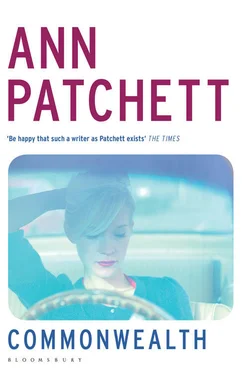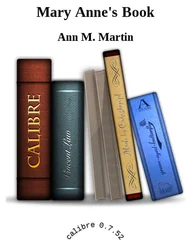“Cal!” Ernestine calls out through the screen. “Where’s your brother at?”
He doesn’t stop. He doesn’t turn around. He shrugs his shoulders and lifts up his hands, keeping his back to her. Cal , Teresa wants to say, speak to her! But she says nothing. She is watching a day that happened thirty-five years ago, a half a world away. She cannot correct his behavior. She cannot change the outcome. She is only allowed to sit and watch, and that is miraculous.
The five of them walk down the blacktop drive out the back, then turn onto a dirt road that eventually becomes not a road but two rutted tracks, the grass growing up in between the two halves to form a median. Holly and Caroline are chattering while Jeanette and Franny listen. Cal is off in front, walking fast enough that from time to time the girls have to break into a trot to keep up. They want to stay together without staying with him, and all five of them have a sense of what is close enough. Cal is tall and blond like his father, his eyes the same blue, his skin brown from the summer spent outside. His expression is one of simmering fury, but then it always is. He doesn’t want to be in Virginia, doesn’t want to be with his sisters, with the Keating girls, with his stepmother, with his grandparents. He doesn’t want to curry the horses, to be bitten by the flies and mosquitoes, to stand in the stink of shit and hay, but there is nothing better to do. That’s the trouble with being fifteen — all he can think of is what he doesn’t want. He’s wearing a UCLA T-shirt and Levi’s though the day is hot. If Cal’s wearing long pants it means he’s taken the gun again. All the children know that.
Jeanette had told Teresa that Cal kept the handgun tied to his leg with bandannas. Jeanette had told her mother everything a long time ago, in that year they lived alone together in the house in Torrance. Without Holly and Albie around she was free to talk about the day Cal died, how they’d wasted the Benadryl to put Albie to sleep, the route they took to the barn, how they had ignored Cal while he was dying, thinking that he was playing a game so that they would come close enough that he could hit them. They had waited a long, long time, sitting in the grass making daisy chains to show him they weren’t falling for it. Jeanette had told her all of this but Teresa didn’t see it then. She had never seen anything before.
Holly, who has the nicest voice of all the girls, the nicest voice in her school, starts to sing, her arms swinging back and forth, “Goin’ to the chapel, and we’re—”
“ Gonna get married .” Caroline and Franny join her.
“Goin’ to the chapel and we’re—”
“ Gonna get married .” Caroline and Franny. Jeanette doesn’t sing at first but she’s moving her lips.
“Gee, I really love you and we’re—”
“Could you shut up for two minutes?” Cal asks, turning around while he’s walking. He is far out ahead of them now, in the tall grass, far enough away that it doesn’t seem like the singing should bother him so much, but it does. “Would that be too fucking much to ask?”
Those are her son’s last words.
“ Gonna get married .” It’s all four of them now, even Jeanette is belting it out, and suddenly Cal charges them. It’s impossible to say if he’s really angry or making a joke, but the girls scatter and scream, running in four different directions. Cal could have caught any one of them but now he has to choose and he stops. Something happened, he feels a sharp pain in his neck while the sisters and the not-sisters run a circle around him. He stops and puts his hand high up on his chest near the base of his throat. Teresa, on her cushion in Switzerland, can feel the constriction, her own breath closing off, because she is watching him and she is him. The girls are singing and running and she wants them to stop. He wants them to stop but he can’t say it. The bee is still on the back of his neck, crawling there. He feels it but he can’t knock it away. He is falling, not just into the grass but someplace farther, the sound of the girls’ voices washed away by the tide of blood, his thrumming heart, the color stripped from their T-shirts, the sun and sky and grass, stripped. His tongue is filling up his mouth. He tries to put his hand in his pocket to search out the last of the Benadryl if there’s any left but he can’t find his hand. He spins straight back with the full force of gravity and the earth thumps up against him hard, driving the bee in, and takes with it the last of the air, the last of the light. He is fifteen and ten and five. He is an instant. He is flying back to her. He is hers again. She feels the weight of him in her chest as he comes into her arms. He is her son, her beloved child, and she takes him back.
Fix was still alive the Christmas after Teresa Cousins died. Impossible but true. It would be his last Christmas, but then the last two Christmases had been his last Christmas, as this past Thanksgiving was his last Thanksgiving. Franny didn’t want to leave Kumar and the boys again for the holidays, nor did she want to bring them with her to Santa Monica. It was too depressing. Franny and Caroline also considered the question of their mother who had been increasingly neglected in every year it was taking their father to die.
“Dad’s not the only one to worry about,” Caroline said, thinking of their mother’s husband. Their mother confided in Caroline now, maybe more than she did in Franny. This was the pleasure of a long life: the way some things worked themselves out. Caroline and her mother had become very close.
“I’m flipping a coin,” Caroline said over the phone. “You’re just going to have to trust me.”
“I trust you,” Franny said. There was no one she trusted more than Caroline.
“Heads you go to Dad’s for Christmas, tails I go to Dad’s.” This was what they’d come to, an instant of anticipatory silence and then the clatter of a quarter coming to rest on Caroline’s kitchen table in San Jose.
The plane had circled in a holding pattern for forty-five minutes before delivering Franny, Kumar, and the boys to Dulles in harrowing weather — snow and pitch-black dark. Ravi, fourteen, and Amit, twelve, sat in the back of the rental car, earbuds stuffed deep into their ears, their heads bobbing gently in discordant time. The boys had been untroubled by the icy skid of the landing gear against the runway, just as they were untroubled by the interstate to Arlington, which was a soup of accidents and ice, cars crawling back to the suburbs like beaten dogs, holiday travelers anxious to arrive on time, holiday travelers desperate to flee. Franny called her mother to tell her not to hold dinner. There was no saying how late they’d be.
“Be as late as you need to be,” her mother said. “If things get bad we’ll eat the onion dip.” She always made onion dip for Ravi, who liked things salted, and a caramel cake for Amit, who liked things sweet.
“As if my mother has ever eaten onion dip,” Franny said to Kumar after hanging up her phone. She was inching the car forward while Kumar attended to the last of his work e-mails. Kumar worked in the mergers and acquisitions department in the behemoth Martin and Fox. He was making plans to defend his client from a hostile takeover even as his wife drove through the blinding snow. It was only fair. Had they been going to see his mother in Bombay she would not have been driving.
“I’ve never seen your mother eat anything,” Kumar said, his thumbs burning up the screen on his phone. “Which is my best proof that she is a goddess.”
Beverly and Jack Dine were both in their sixties when they married: hers early, his late. Kumar had only known Franny’s mother as Jack Dine’s wife, the empress of the Arlington car dealerships, and so he regarded her as happy and powerful, a source of bejeweled splendor. Kumar believed his mother-in-law to be the person she was in this present moment, free from history, and in return for that gift Beverly loved him like a son.
Читать дальше
